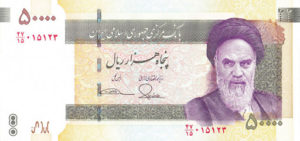January 22, 2021

The official rate is only used to import fewer than 20 “essential” goods, mainly foods and medicines. But since the government last year dropped such items as rice and red meat from the list, the huge price increase may not have a huge impact.
What’s more, many analysts are saying the subsidy really doesn’t help the poor because many importers of essential goods just sell them at open market prices, pocketing the subsidy for themselves.
The hike was approved in the committee by a vote of 23 to 19 with one abstention. The change will still have to be approved by the full Majlis.
The Central Bank weighed in against the change. Central Bank Governor Abdolnasser Hemmati said, “It is not in the interest of the economy.” He said thee government had chosen the rate of 42,000 “with utmost sensitivity.” But that rate was chosen years ago when the open market rate was just a fraction of what it is now.
The official rate is much less important than it used to, largely because such important items as rice have been dropped from the list of items that can be bought with the subsidized dollars, but also because the government isn’t selling as many dollars at the official rate as it used to.
A staffer with the Budget Committee told the Financial Tribune that importers sought to buy $12.2 billion at the official rate during the first nine months of the current Persian year, but the Central Bank only sold $4.4 billion, little more than a third of what importers wanted.
The International Monetary Fund (IMF) has long urged Iran to end the official rate, saying it just twists the economy out of shape. The Financial Times said the changed price of the official rate is part of a concerted effort to abolish it, as is the elimination of so many imported items once covered by the rate.
Cynics expect the government to blame any increased retail prices of food items and medicines on US sanctions rather than the increase in the official rate by 4.2 times.
